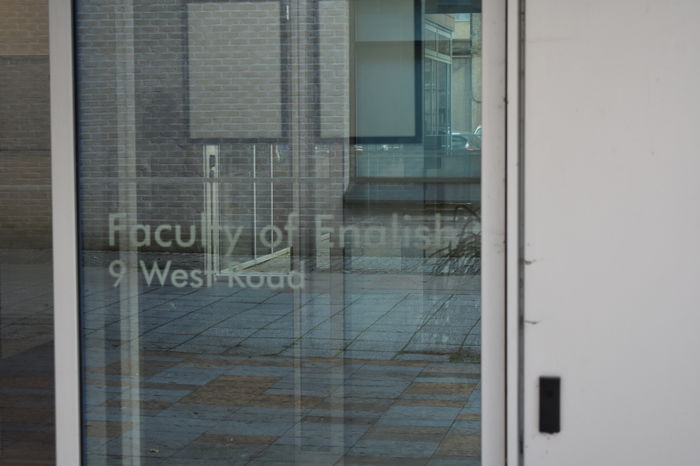Don’t (just) go to your lectures
Sydney Heintz explains how to make your own All-American liberal arts degree, right here in Cambridge

For once, I am convinced there is something Cambridge students don’t know about. Or, if they do, they don’t see its extraordinary value. I am talking, of course, about lectures – more precisely, other subjects’ lectures.
Cambridge makes no secret of its pedagogical philosophy: they admit students of exceptional ability in their chosen field and train said students to excel in it, and only it, for three years. It is highly individualised, and the intellectual rewards are unparalleled. It’s also the natural continuation of the British education system which prompts children to find their particular fields of interests early on in their schooling.
“What if the Americans are onto something?”
And yet, somewhere in the basement of my house in Switzerland, remain the flyers I collected from tours around American colleges, all advertising things like ‘liberal arts’, hundreds of ‘clubs’ and ‘sororities’ to choose from, as well as research opportunities for even the lowliest undergraduate. They’re attractive, glossy, wide-ranging. In another lifetime, I can easily picture myself roaming one of those colonial campuses, taking ‘minors’ in Philosophy and History (let’s be crazy and throw in Music, too) alongside my English ‘major.’ I know, the vocabulary is foreign to us. Where does a ‘class’ stand amidst our categories of supervision, seminar, and lecture, anyway? But the real question we should be asking ourselves is whether something is being lost in translation; whether, in the very act of specialisation, we are narrowing our horizons in irremediable ways. In other words, what if the Americans are onto something?
I’ve been feeling quite anxious about this recently, as the gaps in my contextual knowledge seem to become more serious (and more embarrassing) as my degree advances. For all its emphasis on ‘Practical Criticism and Critical Practice,’ Cambridge English, like any English degree, rewards historical awareness, factual recall, and, when warranted, theological fluency. In other words, it will always be a Good Thing to have read the Consolation of Philosophy before tackling Chaucer or to know about the Reform Act of 1832 when analysing Dickens. It seems simple, but if one does want to understand Boethius or the Chartist movement (for example), this has to be done either through independent reading, or, as I’d like to propose, by attending other subjects’ lectures.
“In the very act of specialisation, do we narrow our horizons in irremediable ways?”
If you’ve obsessively scoured the ’Undergraduate study’ page of the university’s website when first applying (like me), you will have noticed under the ‘Lecture List’ section an interesting detail regarding lecture attendance. It reads: ‘As a matriculated student, you are entitled to attend any lectures (but not classes or practicals) of any degree course.’ Essentially, you can sit in on whatever you like, ‘if there is room for [you] in the lecture theatre.’ As a bright-eyed fresher, I read this statement and got excited. Forget going to America for a ‘liberal arts education’ – I could have the best of both worlds right here, in Cambridge.
Since my first Michaelmas term, I have attended lectures on everything from the unification of Germany to Rawls’s Theory of Justice, Corneille’s Le Cid to Roman accounts of Nero. I have infiltrated a very spirited lecture on Descartes (and understood close to nothing), a survey of post-war British economy, and a discussion of Cicero. I get some bewildered looks when I tell people this – but it’s been a wonderful, slightly cheeky experience so far, sitting amongst maybe a dozen classicists nodding along to a lecturer’s brilliant take on Hector, or a hundred economists diligently taking notes on that week’s micro. The best thing about it, is that it doesn’t have to be directly relevant to my degree to be useful: just by sitting in on lectures whose topics I may or may not be familiar with, my horizons are expanded to encompass a whole range of worldviews that wouldn’t otherwise be accessible to me. I pick up new material to use in my essays, book recommendations, or, if nothing else, it’s just a great way to take my mind off things!
This is to say that no matter the outcome, the practice leaves me intellectually refreshed; exposed to something so different that I come back to my own work with a renewed interest and liveliness that is hard to put into words. It also captures something of the ‘liberal arts’ education our American counterparts are so keen on without the drawback of being spread too thin across subjects. I cannot recommend it enough. So, next time you find yourself with some free time between lectures, why not have a wander about Sidge and pose as a historian for an hour? Or a lawyer? Or a philosopher? I'll maybe even see you there.
 Comment / Plastic pubs: the problem with Cambridge alehouses 5 January 2026
Comment / Plastic pubs: the problem with Cambridge alehouses 5 January 2026 News / Cambridge academics stand out in King’s 2026 Honours List2 January 2026
News / Cambridge academics stand out in King’s 2026 Honours List2 January 2026 News / Cambridge businesses concerned infrastructure delays will hurt growth5 January 2026
News / Cambridge businesses concerned infrastructure delays will hurt growth5 January 2026 News / AstraZeneca sues for £32 million over faulty construction at Cambridge Campus31 December 2025
News / AstraZeneca sues for £32 million over faulty construction at Cambridge Campus31 December 2025 Interviews / You don’t need to peak at Cambridge, says Robin Harding31 December 2025
Interviews / You don’t need to peak at Cambridge, says Robin Harding31 December 2025










